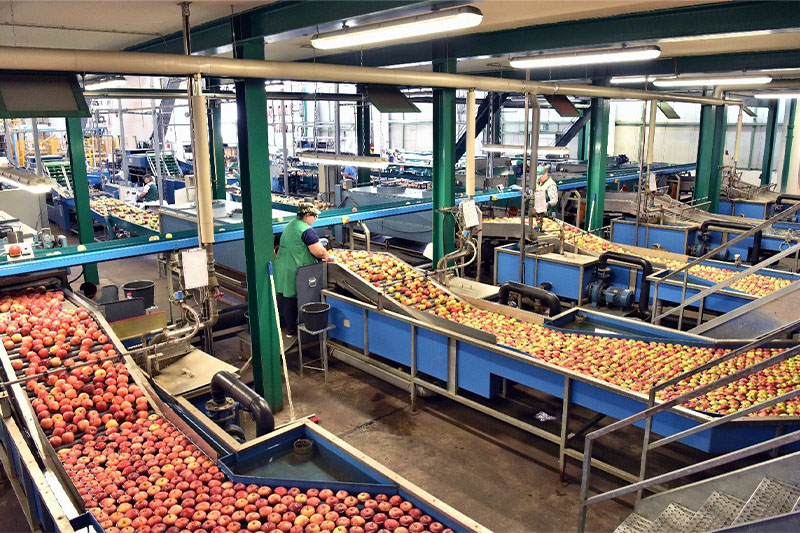
S/4hana Pre-Project Led By NTT DATA Culminates In Detailed Transformation Roadmap For Global Food Processing Client
The client
The client is a multinational food processing company specialised in the production of private label packaged foods, headquartered in the United States. Since their foundation they have expanded considerably through acquisitions. By 2010, the company was generating sales of $2 billion.
Their corporate structure features two principal divisions, the first of which focuses on the production and sale of both sweet and savoury baked goods, alongside hot and cold beverages. Their products feature shelf-stable, refrigerated and frozen varieties, and include organic and gluten-free options.
The other division focuses on grocery and main-meal foodstuffs, also providing these in shelf-stable and refrigerated formats. They are category leaders in the sector and offer a variety of products with improved nutritional solutions.
Over the past two years, the impact of COVID-19 has given rise to considerable growth for the client. As a result, the client was interested in accelerating the business case for a S/4HANA transformation, with the central objective of studying the technical migration path from SAP ECC to SAP S/4HANA. To facilitate this, the client was also willing to provide functional business analysts and testers from their side.

The challenge
NTT DATA needed to provide a detailed overview of the effort required and prospects for a pure technical conversion to S/4HANA. The overarching aim would be to gauge whether a Brownfield approach would be feasible for the client, and to determine the scale and scope of effort required for an SAP S/4HANA transformation. In particular, the client wanted to investigate the potential post-migration impact on their core ERP functionality (ECC 6.0).
Given that the migration to S/4HANA manufacturing is expected to be a five-year annuity of consulting, with an estimated total contract value of $50 million, it is important that the client has a strong business case for any future transformation. In addition, it was likely that many of the client's customised ERP functionalities would require engineering in order to perform as they should post-migration. Part of the challenge would be to identify the ones that would require adaptation.


The solution
To begin the pilot investigation, NTT DATA produced a clone of the client's existing ECC environment in order to perform a technical conversion to S/4HANA. This made it possible to run a battery of tests in the S/4HANA environment to determine issues and develop mitigation strategies accordingly.
The testing process was divided into two phases and covered key functionalities such as Record to Report, Order to Cash, Purchase to Pay, and Service to Repair. In the first phase, NTT DATA carried out two months of testing in a single plant of the client's operations, identifying which transactions did not work in the S/4HANA environment. Where it was feasible within the budgeted duration, NTT DATA fixed and re-tested any priority transactions that were identified. In the second two-month phase, a high-level sandbox was created where the client could test out different transactions.
Through extensive testing within the S/4HANA environment, NTT DATA were able to accurately evaluate the functionality of the client's ERP core post-migration, and determine the overall impact of a transformation on current processes. NTT DATA were then able to establish action items to be considered in any future technical upgrades.

The result
As a result of the collaboration with NTT DATA, the client has a detailed overview of SAP S/4HANA and its ERP core functionality. NTT DATA developed a customised approach, which allowed the client to envision how an S/4HANA transformation would impact company-specific business processes. The client is now equipped with a detailed roadmap for migration.
On NTT DATA's end, it will now be possible to develop an S/4HANA template for food processing companies. Of the client's operating plants, 45 could be migrated using this template. In addition, the template will form a part of a turn-key offering for rapid implementation in the consumer packaged goods industry (CPG), specifically in the food processing sector. The documentation developed on business process know-how can be reused for other clients in the same industry.
Additionally, NTT DATA has acquired some significant and valuable takeaways for future projects of this nature. It is clear, for example, that the period of pre-requisite documentation review in advance of the project itself must be lengthened. Furthermore, strong Basis and Advanced Business Application Programming support must be provided for in this type of technical upgrade.
Some additional configuration requirements—such as Plant Maintenance—required access to the source system to review existing configurations. The importance of that access will be transmitted beforehand where it may be required ahead of future projects, as will the need for access to the target system to provide manual upgrades if necessary.
Finally, the duration estimates provided by SAP do not sufficiently account for the trial and error required in such projects, and this will be accounted for in future.

Why NTT DATA
With more than 45 years of experience and 15,000 professionals serving manufacturing clients in different markets, NTT DATA is an expert in discrete manufacturing. Since its inception, NTT DATA has cultivated a sound understanding of the sector's challenges and the needs of large manufacturers. By creating innovative solutions that deliver sustainable business value for manufacturing companies, NTT DATA has consistently leveraged their expertise to give clients a competitive advantage.
The scope of NTT DATA's capabilities also made them a favourable partner for the client's needs. Thanks to their global reach and team-based approach, NTT DATA were able to ensure the smooth delivery of resources required around the world, while also providing localised capabilities. NTT DATA's competencies are also reinforced by a highly skilled and multilingual workforce, guaranteeing flexibility and quality at every stage of the project.

What's next
Looking forward, NTT DATA's immediate steps will be to review logs collected from the testing phase. Here, it will be important to identify any areas for development or remediation.
Beyond this point, efforts will be focused on preparing the client for Optimizer installation ahead of the system migration. Once approved by the client and network access to their system has been granted, NTT DATA will be able to begin the installation of Optimizer software into the target environment. For this process, remote assessments are expected to take place for a period of five to ten days. When complete, the NTT DATA Centre of Excellence team will review the results.
Based on these results, the NTT DATA development team will then be able to estimate the effort for the redevelopment of the client's customised functionalities that would be required for a S/4HANA migration. NTT DATA will then deliver an 'improvement portfolio', which will serve as the roadmap for implementing any necessary enhancements.
This article has been reprinted with permission from the website of "https://leap.nttdata.com/".

Related Links
You can see more LEAP case studies below.
https://leap.nttdata.com/case-studies/


